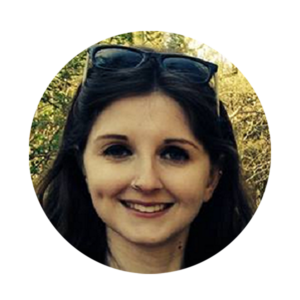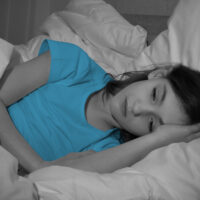Recording of the session and slides from the session – you will need the password emailed to you to access these
The ACAMH West Midlands Branch is delighted to present an interactive webinar for all who work with children and young people and have an interest in children’s sleep. Dr. Caroline Richards, Dr. Stacey Bissell, and Dr. Georgie Agar, sleep researchers at the University of Birmingham, will give case-based presentations on children’s sleep issues and will respond to your questions.
Getting a good night’s sleep is essential for children’s psychosocial wellbeing. Recent research shows that children who routinely get less sleep than they need are more likely to experience a range of problems including attention difficulties, hyperactivity, oppositional and aggressive behaviour, mood swings and anxiety. Loss of sleep also affects cognitive function – even limited sleep deprivation has been shown to result in a measurable deficit in cognitive performance.
Children with conditions that involve difficulty with self-regulation such as attention deficit hyperactivity disorder (ADHD) and autistic spectrum disorder (ASD) tend to have more problematic sleep than children within the general population. For example children with ADHD experience more fatigue and sleepiness during the day when compared to children without ADHD.
Behavioural treatments are now available for children who experience sleep difficulties. These treatments not only address common sleep problems but have been shown to result in improvements in the daytime behaviours of children whose sleep problems have been effectively treated.
Key takeaways
- Gain a better understanding of the development, and management, of sleep difficulties in children, from the latest research.
- Understand what the particular sleep issues of children with neurodevelopmental conditions are, and the interventions available.
- Increase your ability, skills, and confidence when working with children experiencing sleep difficulties, particularly for SENCOs, and social workers.
- Learn what the additional routes are for supporting children and building resilience.
About the speakers

Dr. Richards leads a programme of research at the University of Birmingham which aims to improve clinical outcomes for children with intellectual disability, autism and rare genetic syndromes. She use experimental, epidemiological, single case and meta-analytic techniques to delineate risk markers, improve precision in models of mechanism and develop novel, proactive interventions. Her work on self-injurious behaviour in children with intellectual disabilities is funded by the Medical Research Council, Medical Research Foundation, Cerebra and the Baily Thomas Charitable Fund. https://carolinerichards.net/ https://www.cerebranetwork.com/

Dr. Stacey Bissell is a Research Fellow at the Richards Lab, working under the supervision of Dr Caroline Richards. Her research focuses on early developmental profiles in young children with neurodevelopmental disorders and the impact of sleep disorders, epilepsy severity and autism characteristics on the presentation of externalising behaviours (e.g., self-injury, aggression, temper outbursts). Her current work explores the profile of sleep and behaviour in children with tuberous sclerosis complex (TSC) using actigraphy and mobile app technology.

Dr. Georgie Agar currently works as a Research Fellow at the Richards Lab, University of Birmingham, investigating sleep and self-injury in children with intellectual disability and autism. Her Cerebra funded PhD was conducted at the Cerebra Centre for Neurodevelopmental Disorders exploring the prevalence, profile and persistence of sleep disorders and their correlates in rare genetic syndromes. Georgie’s work combines actigraphy, behavioural assessments and fine-grained observational techniques.


